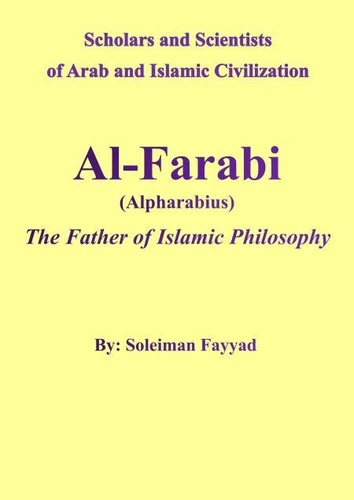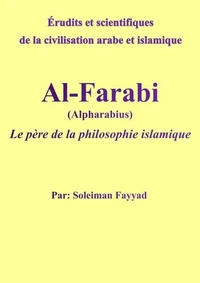Nouveauté
Al-Farabi (Alpharabius) - The Father of Islamic Philosophy. Scholars and Scientists of Arab and Islamic Civilization, #1
Par :Formats :
Disponible dans votre compte client Decitre ou Furet du Nord dès validation de votre commande. Le format ePub est :
- Compatible avec une lecture sur My Vivlio (smartphone, tablette, ordinateur)
- Compatible avec une lecture sur liseuses Vivlio
- Pour les liseuses autres que Vivlio, vous devez utiliser le logiciel Adobe Digital Edition. Non compatible avec la lecture sur les liseuses Kindle, Remarkable et Sony
 , qui est-ce ?
, qui est-ce ?Notre partenaire de plateforme de lecture numérique où vous retrouverez l'ensemble de vos ebooks gratuitement
Pour en savoir plus sur nos ebooks, consultez notre aide en ligne ici
- FormatePub
- ISBN8231698882
- EAN9798231698882
- Date de parution27/07/2025
- Protection num.pas de protection
- Infos supplémentairesepub
- ÉditeurWalzone Press
Résumé
Al-Farabi is a genius scientist and philosopher, who lived in the fourth century Hijri, tenth AD. He is an encyclopedic scientist in the sciences of medicine, chemistry, light, astronomy, mathematics, sociology, philosophy and logic. He was nicknamed the second teacher after Aristotle. Al-Farabi is the first to develop a nucleus or method for a circle of knowledge, in which he recorded the knowledge of humanity and science in his time.
He was the first to tell the theory of the social contract. Al-Farabi researched in political society and the emergence of the state and its system from an Islamic philosophical point of view. He was the first to invent the musical qanun. He was the first to give a description of the one-stringed and two-stringed rabab instrument of equal thickness. He developed some musical terms and sound names that are still used among musicians to this day.
He was the first to predict that man would one day invade space. The first signs of logarithms appeared in his research on the relationship between music and mathematics
He was the first to tell the theory of the social contract. Al-Farabi researched in political society and the emergence of the state and its system from an Islamic philosophical point of view. He was the first to invent the musical qanun. He was the first to give a description of the one-stringed and two-stringed rabab instrument of equal thickness. He developed some musical terms and sound names that are still used among musicians to this day.
He was the first to predict that man would one day invade space. The first signs of logarithms appeared in his research on the relationship between music and mathematics
Al-Farabi is a genius scientist and philosopher, who lived in the fourth century Hijri, tenth AD. He is an encyclopedic scientist in the sciences of medicine, chemistry, light, astronomy, mathematics, sociology, philosophy and logic. He was nicknamed the second teacher after Aristotle. Al-Farabi is the first to develop a nucleus or method for a circle of knowledge, in which he recorded the knowledge of humanity and science in his time.
He was the first to tell the theory of the social contract. Al-Farabi researched in political society and the emergence of the state and its system from an Islamic philosophical point of view. He was the first to invent the musical qanun. He was the first to give a description of the one-stringed and two-stringed rabab instrument of equal thickness. He developed some musical terms and sound names that are still used among musicians to this day.
He was the first to predict that man would one day invade space. The first signs of logarithms appeared in his research on the relationship between music and mathematics
He was the first to tell the theory of the social contract. Al-Farabi researched in political society and the emergence of the state and its system from an Islamic philosophical point of view. He was the first to invent the musical qanun. He was the first to give a description of the one-stringed and two-stringed rabab instrument of equal thickness. He developed some musical terms and sound names that are still used among musicians to this day.
He was the first to predict that man would one day invade space. The first signs of logarithms appeared in his research on the relationship between music and mathematics




